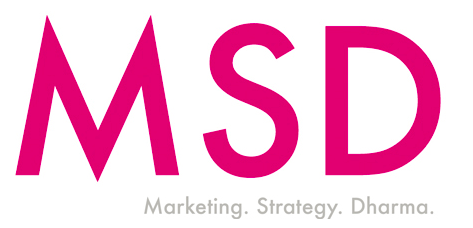It comes as no surprise that as millennials join the labor force, they are disrupting the way we look at business. The rise of social enterprises is one of these disruptions. Social enterprise is a distinct way of doing business; as companies that champion a cause or issue, they actually profit in their pursuit to create social change. 60% of social enterprises in the US were founded in the past 10 years, and this number will only rise. As more and more consumers use dollars to vote for companies with a strong social cause, logically, social enterprises will continue to grow.
One company in particular is paving the way for social enterprises. TerraCycle, an innovative company that reuses and recycles waste to create consumer products, is a prime example of a burgeoning social enterprise. Inspired by the idea that worms could create a great fertilizer, founder Tom Szaky and his friends created TerraCycle as an organic, sustainable fertilizer company. Szaky soon realized that the fertilizer business had little potential for growth, and was inspired after meeting with the Founder and CEO of Honest Tea Seth Goldman. Goldman asked TerraCycle to solve Goldman’s waste problem--Goldman feared his company’s nonrecyclable packaging would stay in landfills. Szaky took to work, and personally created prototypes of tote bags and pencil cases from Honest Tea juice pouches. From there, TerraCycle discovered a profitable pivot.
Capri Sun and Honest Kids pouches upcycled into tote bags
TerraCycle’s success comes from the idea of “upcycling” old materials. The company expanded following its partnership with Honest Tea, and has worked with Capri Sun, Oreos, Chips Ahoy and other Kraft brands to create a growing portfolio of upcycled products. By helping partners pinpoint wasteful manufacturing processes, TerraCycle helps companies cut costs, reduce waste, and generate profit. Szaky and his team were able to create a multi-million dollar company from scratch, all by reaping the benefits of shared value in the social enterprise space.
TerraCycle’s business model, based on shared value and strategic partnerships, has made it a market leader. The company’s partnerships with Honest Tea, CLIF Bar, Stonyfield Farm, Kraft Foods, and other major consumer brands, has created invaluable social impact: TerraCycle operates in over 20 countries and redirects nearly 2 million pounds of waste from landfills every week. The company’s ability to scale, securing partnerships with most of the top 50 corporations who produce the most nonrecyclable trash, is impressive. By turning to TerraCycle to solve their waste solutions, companies cut major costs and effectively place a green halo atop their brands in a new environmentally-conscious marketplace. TerraCycle’s logo is a growing “stamp of approval” for eco-friendly consumers, and perpetuates meaningful, genuine relationships between customers and brands.
Through social media, grassroots and guerrilla marketing, and word-of-mouth, TerraCycle has become a global powerhouse. Even more, TerraCycle has a reality TV show. “Human Resources”, a reality TV show based on the quirks of TerraCycle’s employees at its Trenton, NJ headquarters, is about to premiere its third season on Pivot. With each bold move, TerraCycle affirms its place as a disruptor in the social enterprise space. With each new corporate partnership established, TerraCycle’s influence spreads to create an even greater environmental impact.
Stephanie Yang, MSD Intern


